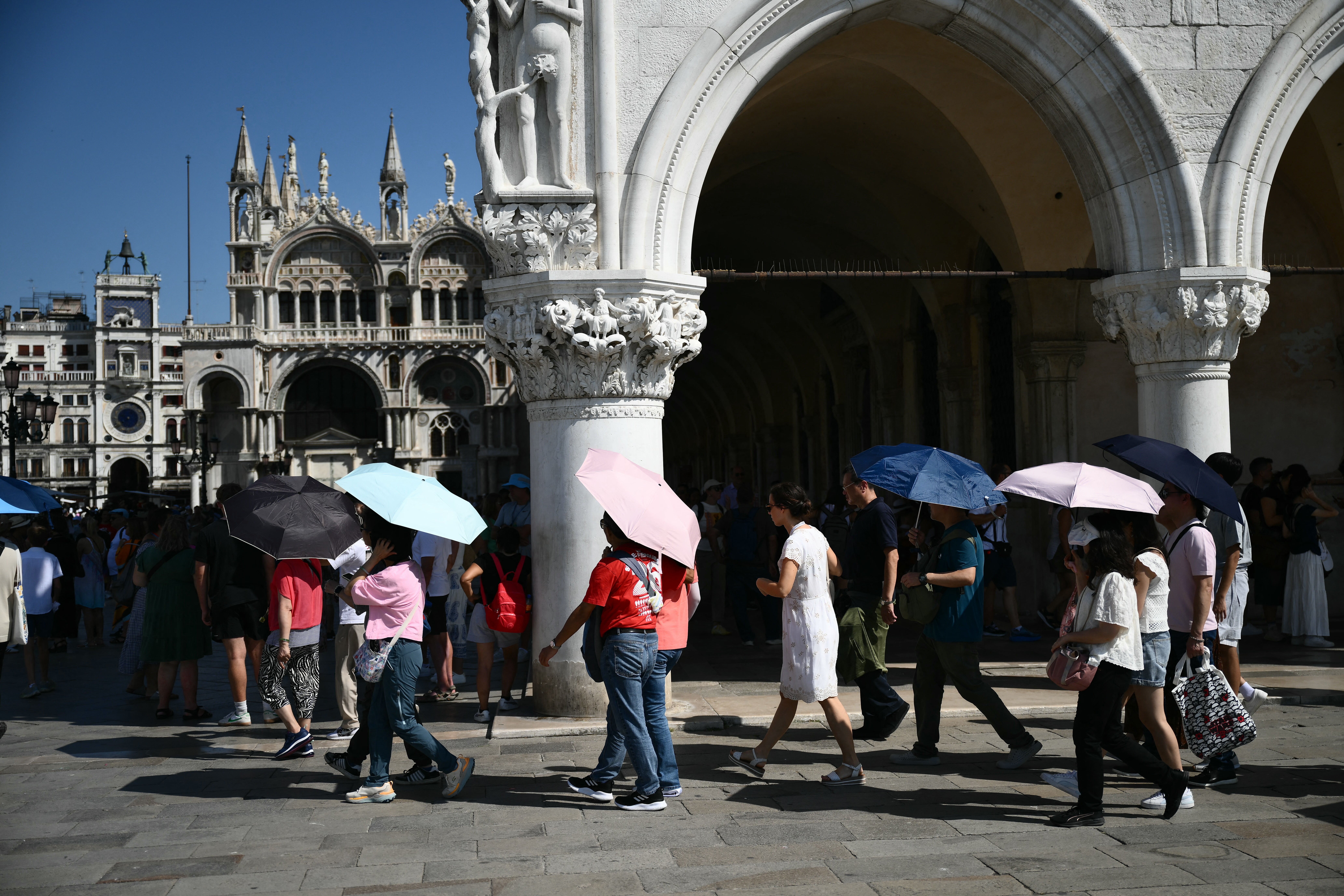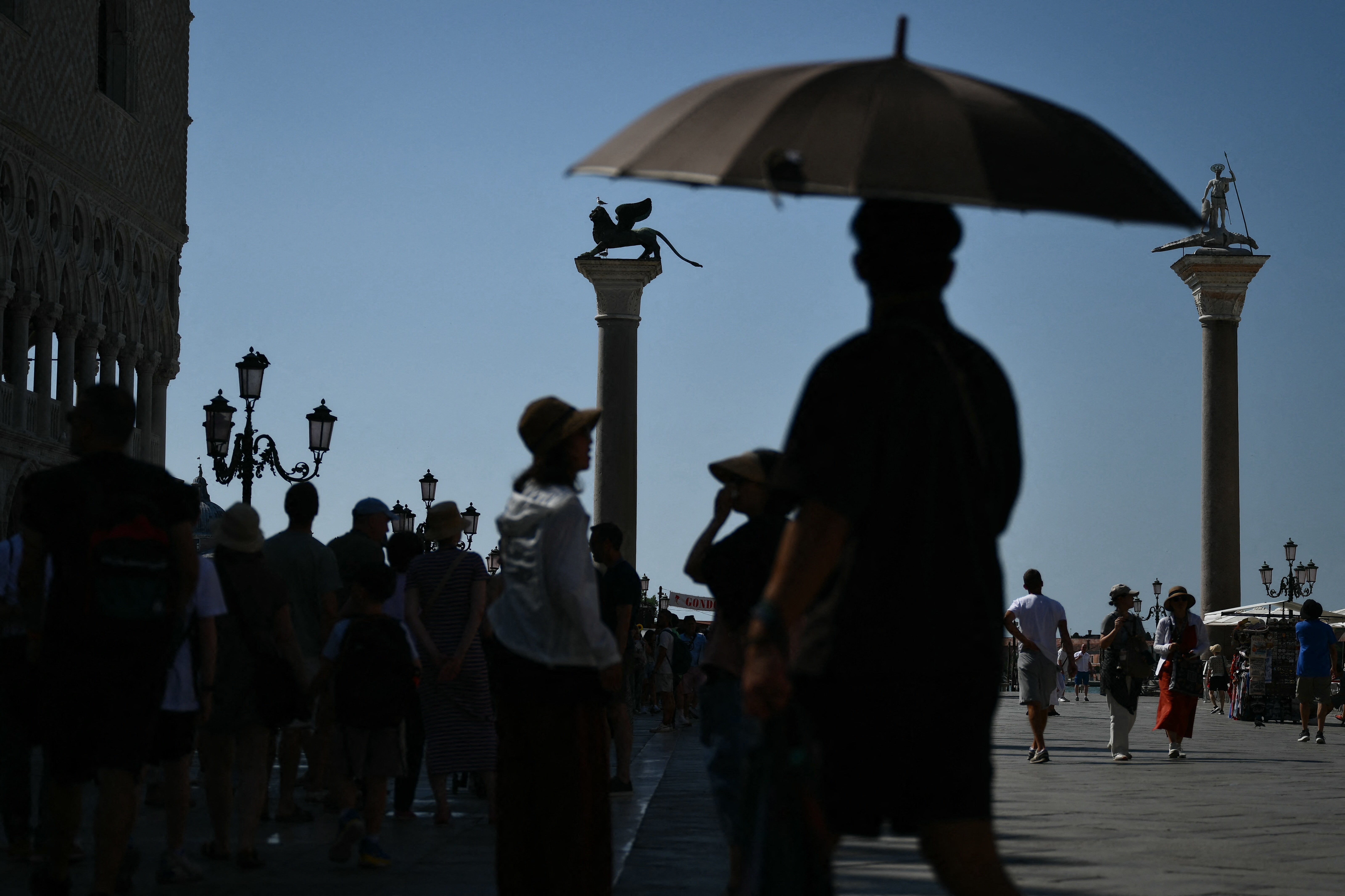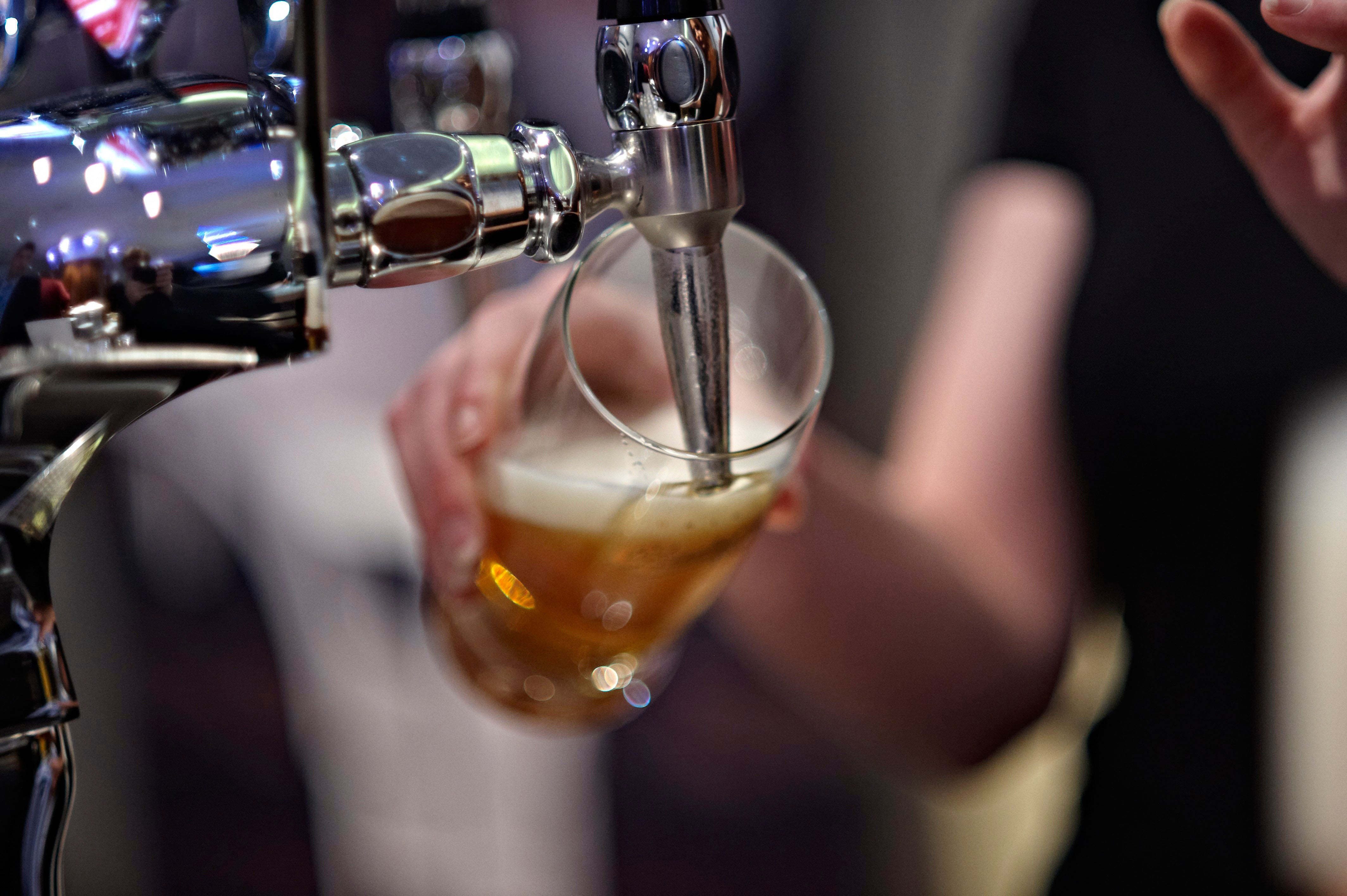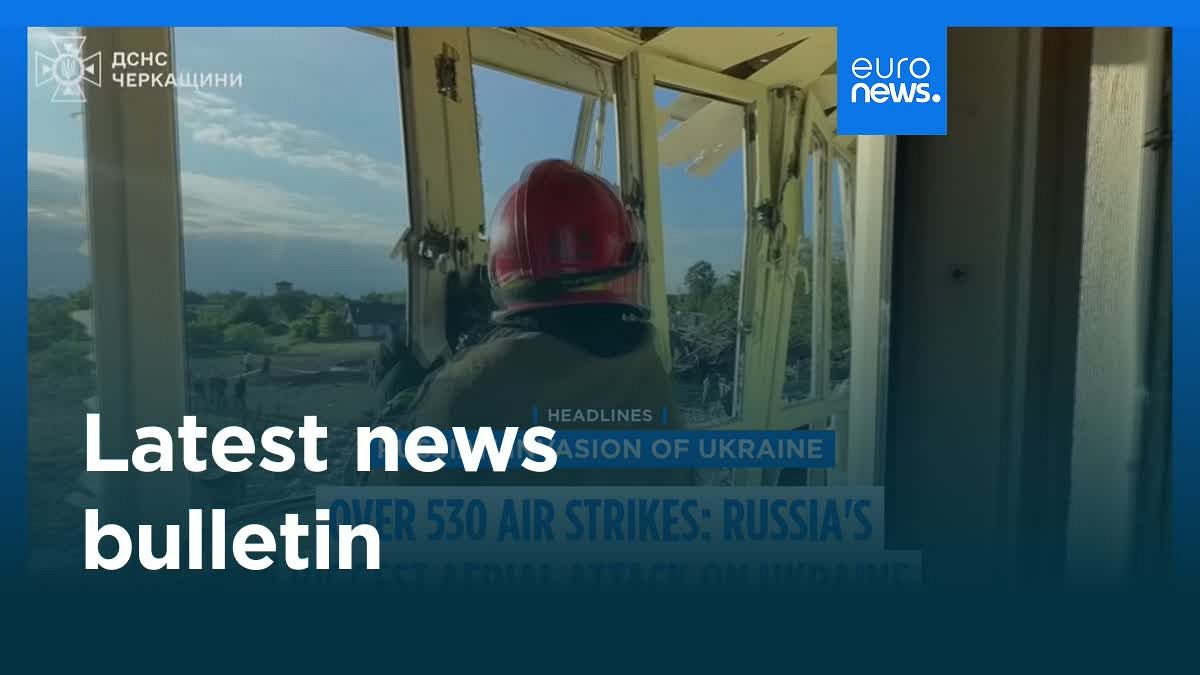Europe is on high alert as the continent faces its first major heatwave of the summer, with temperatures expected to climb as high as 42C.
Aemet, Spain’s national weather agency, issued a special warning, forecasting highs of up to 42C in the country’s southern regions in the coming days.
The forecaster said the heat would be both intense and prolonged, posing particular risks to vulnerable groups and those exposed to the sun for extended periods.
Madrid’s health ministry also urged people to take precautions, advising them to stay in the shade, drink plenty of fluids, and check on older people, pregnant women, and anyone with existing health conditions.
In neighbouring Portugal, around two-thirds of the country will be placed under high alert on Sunday due to extreme temperatures and the risk of wildfires. Lisbon could see highs of 42C.
Across the border in France, with temperatures in Marseille nearing 40C, local authorities have announced that public swimming pools will be free to help residents cool down.
In Italy, where cities such as Naples and Palermo are bracing for 39C heat, the regions of Sicily and Liguria have introduced bans on outdoor work during the hottest parts of the day.
Map: Where second UK heatwave of 2025 will hit as temperatures set to soar to 32C
Jabed Ahmed28 June 2025 15:28
Pictured | Scorching temperatures in Venice, Italy
Italy's health ministry warned residents and tourists on 27 June of soaring temperatures across the country, issuing a red alert for 21 cities this weekend.
The ministry issued its top red alert for cities including the capital Rome, Milan and Venice.


Jabed Ahmed28 June 2025 15:01
How to keep your home cool
Homes can become uncomfortably warm during hot weather, especially at night when trying to sleep.
To keep indoor temperatures down, consider the following steps:
- Keep blinds and curtains closed on windows that face direct sunlight during the day
- If your home has external shutters or shades, keep them closed too
- Try to sleep or rest in the coolest part of the house
- When it’s cooler outside than indoors, typically during the night, open windows if it is safe, and create a cross-breeze to help air circulate
- Use electric fans if the indoor temperature is below 35C, but avoid directing airflow straight at your body, as this can contribute to dehydration
- Make sure heating systems are switched off
- Turn off any lights or electronic devices not being used, as they can generate extra heat
- If the temperature outside is cooler, especially in shaded areas, consider spending time outdoors
Public spaces such as places of worship, libraries or supermarkets may be cooler than your home. If they are nearby, visiting one can offer a helpful break from the heat.
Jabed Ahmed28 June 2025 14:31
How to protect yourself from the sun
The sun in the UK is strong enough to cause sunburn, with children especially vulnerable to skin damage.
To reduce your risk, follow these sun safety measures:
- Stay in the shade between 11am and 3pm, when the sun is at its strongest
- Wear loose, light-coloured clothing made from tightly woven fabric, such as long-sleeved shirts, trousers or long skirts
- Protect your head, neck, face and ears with a wide-brimmed hat
- Use sunglasses to shield your eyes from the sun
- Apply sunscreen generously and top it up regularly, especially after swimming or using a towel. The NHS recommends using sunscreen with a sun protection factor (SPF) of at least 30 and a UVA rating of four or five stars.
Jabed Ahmed28 June 2025 14:01
How to prevent dehydration during heatwave
The government advises staying hydrated during hot weather by drinking fluids regularly throughout the day, particularly if you are active.
Water, diluted squash and lower-fat milks are recommended. While fruit juice, smoothies and soft drinks can seem refreshing, they often contain high levels of sugar, which may contribute to dehydration.
It’s best to limit how much of these you consume and opt for diet, sugar-free or no-added-sugar alternatives instead.
If you’re heading out, take a refillable bottle of water with you, and carry extra if travelling by car or public transport.
Alcohol can dehydrate the body, so choosing alcohol-free drinks or alternating alcoholic drinks with water is advised.

Jabed Ahmed28 June 2025 13:29
Wimbledon set for scorching start as heatwave looms
Wimbledon is braced for its hottest ever start with London set to endure a searing heatwave that is forecast to peak as play begins at the All England Club on Monday.
With the mercury expected to rise into the mid-30s Celsius on Monday after a hot weekend, players, organisers, ticket holders and those queuing face a challenging day.
While elite players are likely to cope with the expected heat, Wimbledon organisers are taking precautions to protect the general public and staff, including ball boys and girls (BBGs).
"Adverse weather is a key consideration in our planning for The Championships, and we are prepared for the predicted hot weather, with comprehensive plans in place for guests, players, staff and the BBGs," a club statement said.
More free water refill stations will be provided around the grounds and real-time weather alerts will be announced on big screens and via the tournament website.
Staff shifts will also be adjusted to mitigate the heat while 'shade-mapping' will help people get away from the sun.
Jabed Ahmed28 June 2025 13:00
Five common types of medication that make it hard to cope in the heat
Jabed Ahmed28 June 2025 12:29
Who is most at risk during hot weather?
While anyone can feel unwell in the heat, some people are more vulnerable. These include:
- Older adults, especially those aged 65 and over
- Babies and young children under five
- People with long-term health conditions such as heart or lung problems, dementia, diabetes, kidney or mobility issues
- Those taking certain medications or living with serious mental health conditions
- Anyone already unwell and dehydrated, for example, due to sickness or diarrhoea
- People who are dependent on alcohol or drugs
- Individuals who are very active outdoors, such as runners, cyclists or manual workers
- Those without stable housing, including rough sleepers or people in temporary accommodation
- People living alone who may struggle to look after themselves during extreme heat
Jabed Ahmed28 June 2025 12:01
How to spot heat exhaustion and heat stroke
Heat exhaustion happens when the body gets too hot and struggles to cool down. It’s not usually serious if you cool down within 30 minutes, but if untreated, it can develop into heatstroke, according to the NHS.
Signs of heat exhaustion include:
- Tiredness or weakness
- Dizziness or feeling faint
- Headache
- Muscle cramps
- Nausea or vomiting
- Heavy sweating
- Strong thirst
Heatstroke is more serious and occurs when the body’s temperature rises to dangerous levels and can no longer cool itself.
Symptoms include:
- Confusion or disorientation
- Loss of coordination
- Rapid heartbeat
- Fast breathing or shortness of breath
- Hot, dry skin (not sweating)
- Seizures
Heatstroke is a medical emergency. Call 999 immediately and try to cool the person down while waiting for help.
Jabed Ahmed28 June 2025 11:31
Amber heat health alerts issued across UK as temperatures set to soar above 30C
Jabed Ahmed28 June 2025 11:00

 1 day ago
1
1 day ago
1









